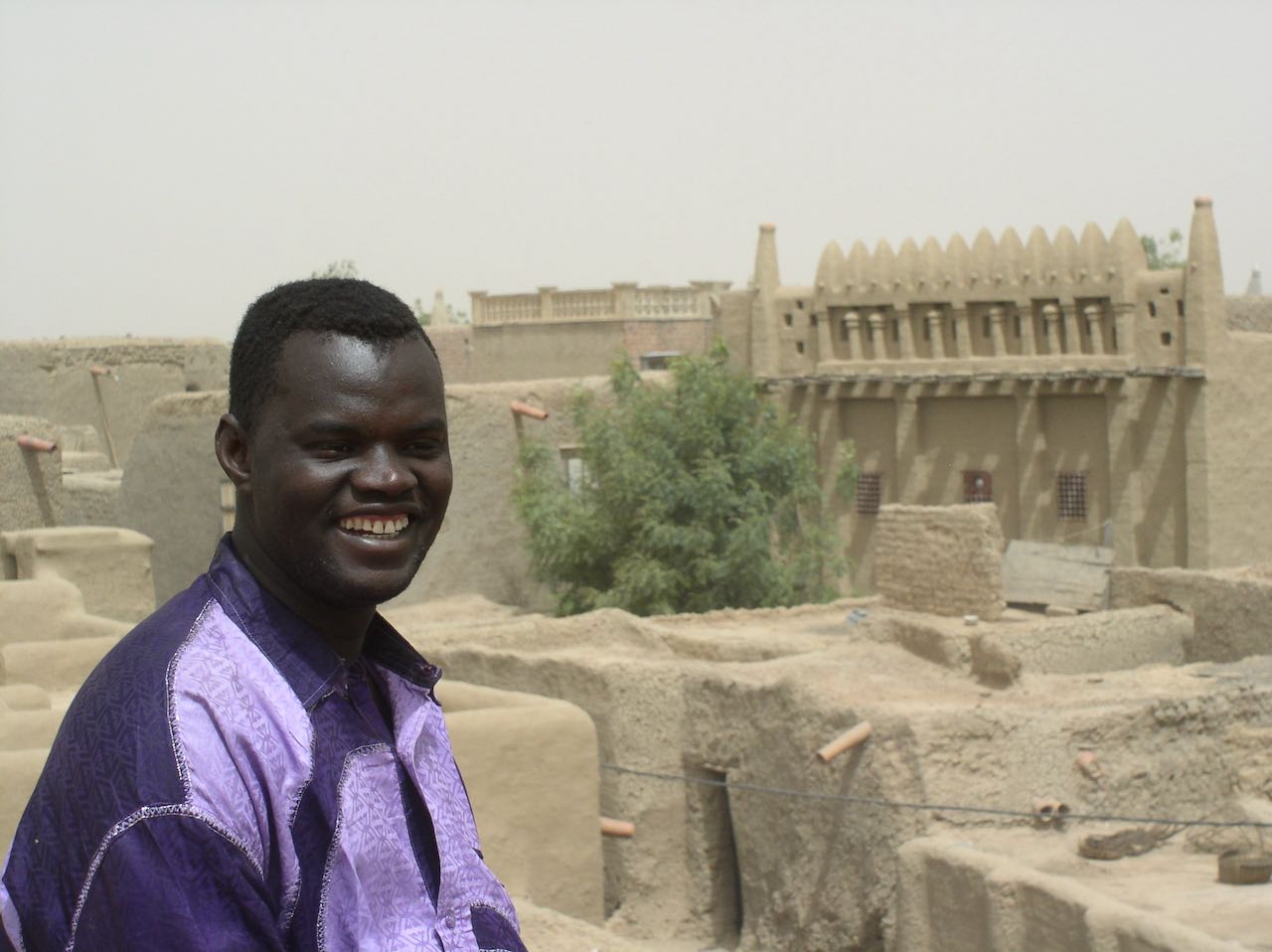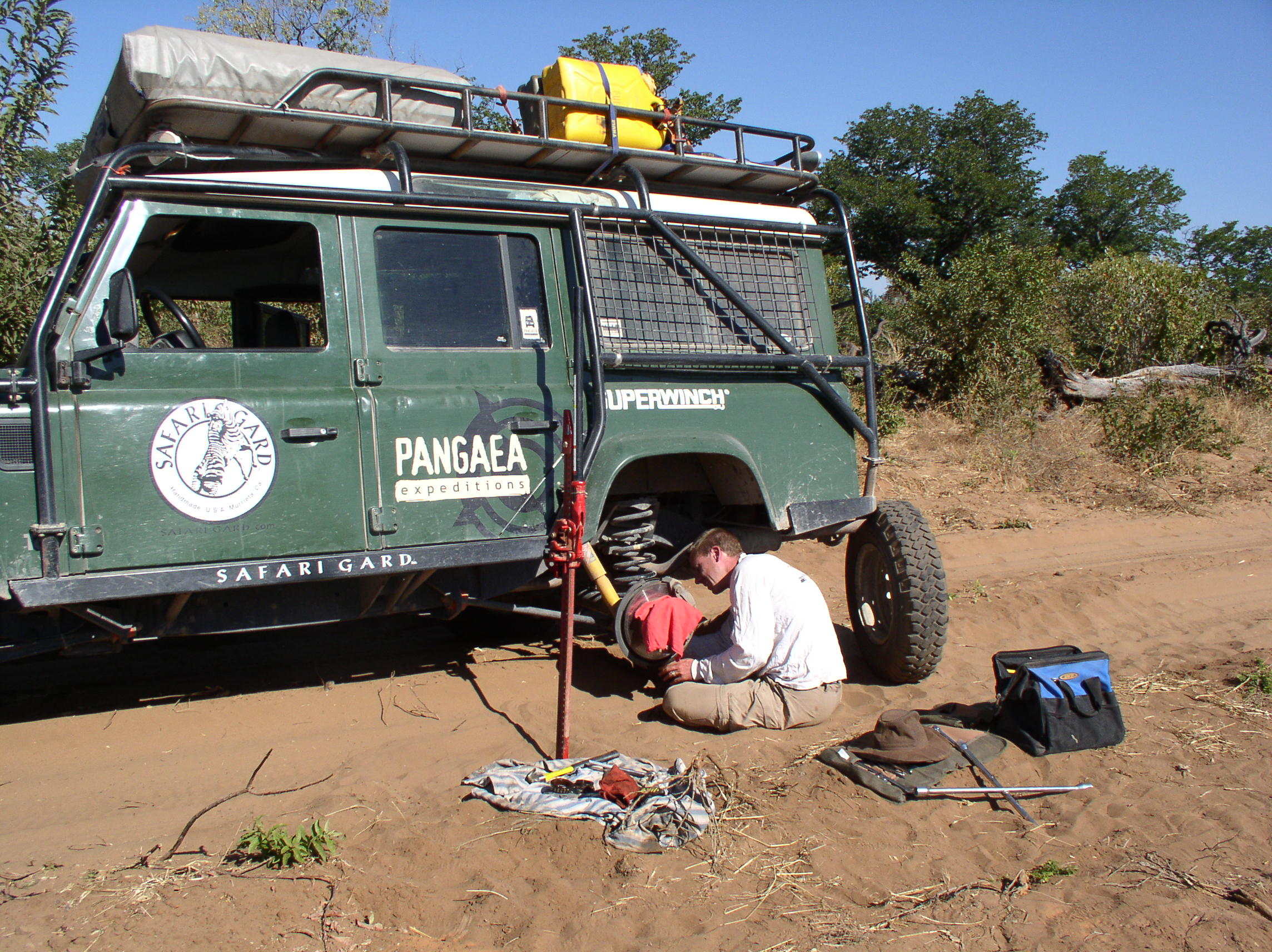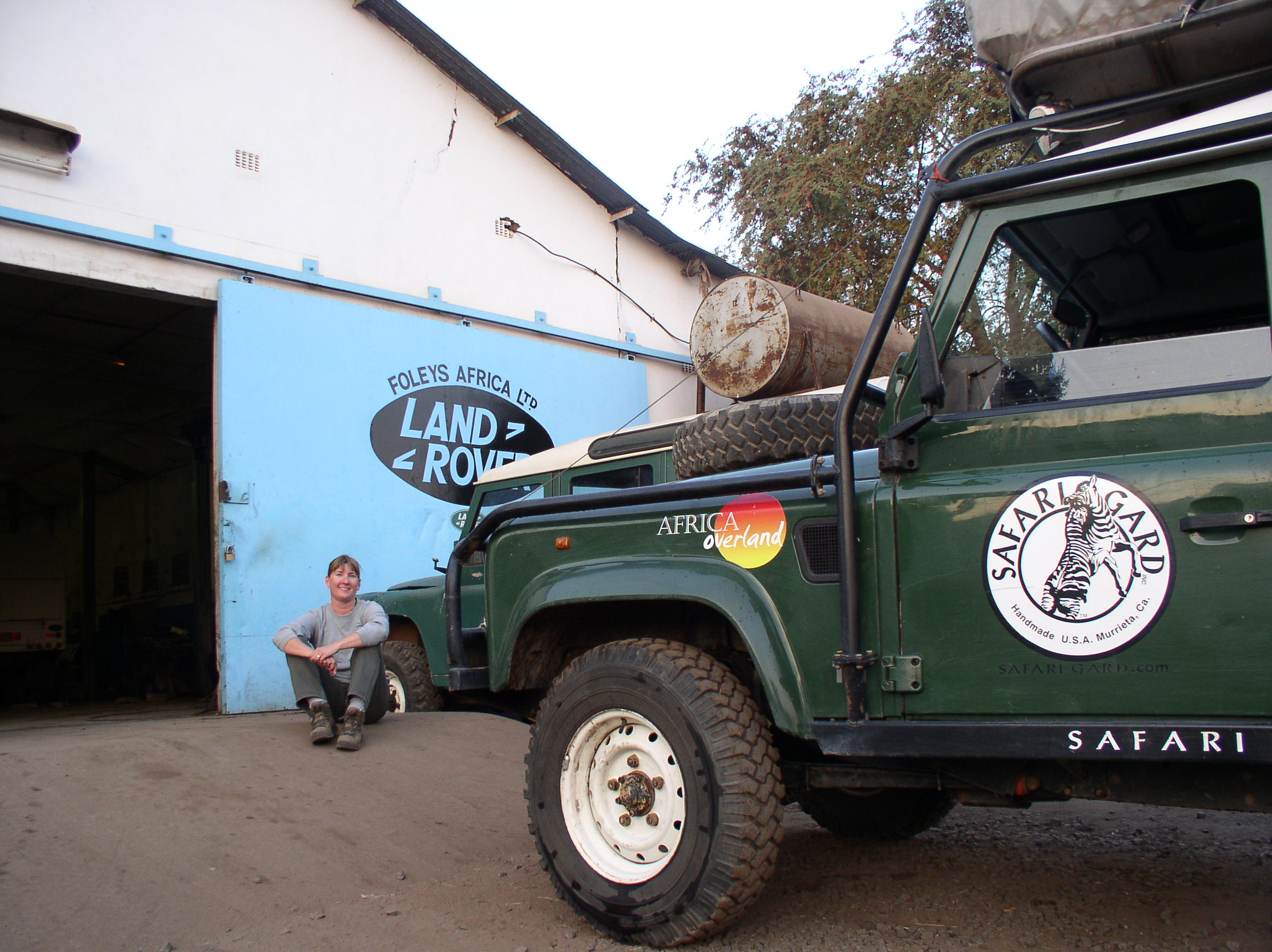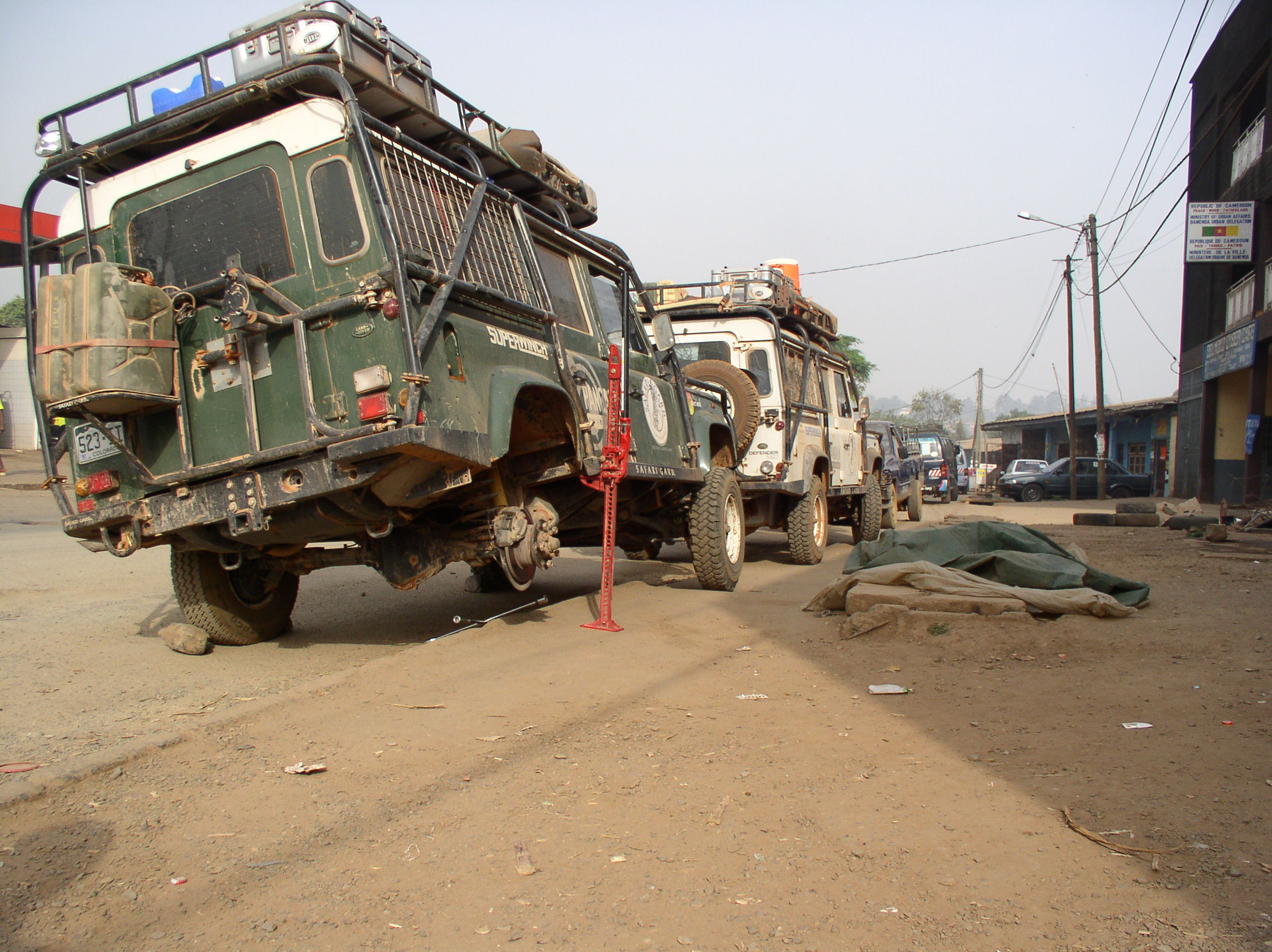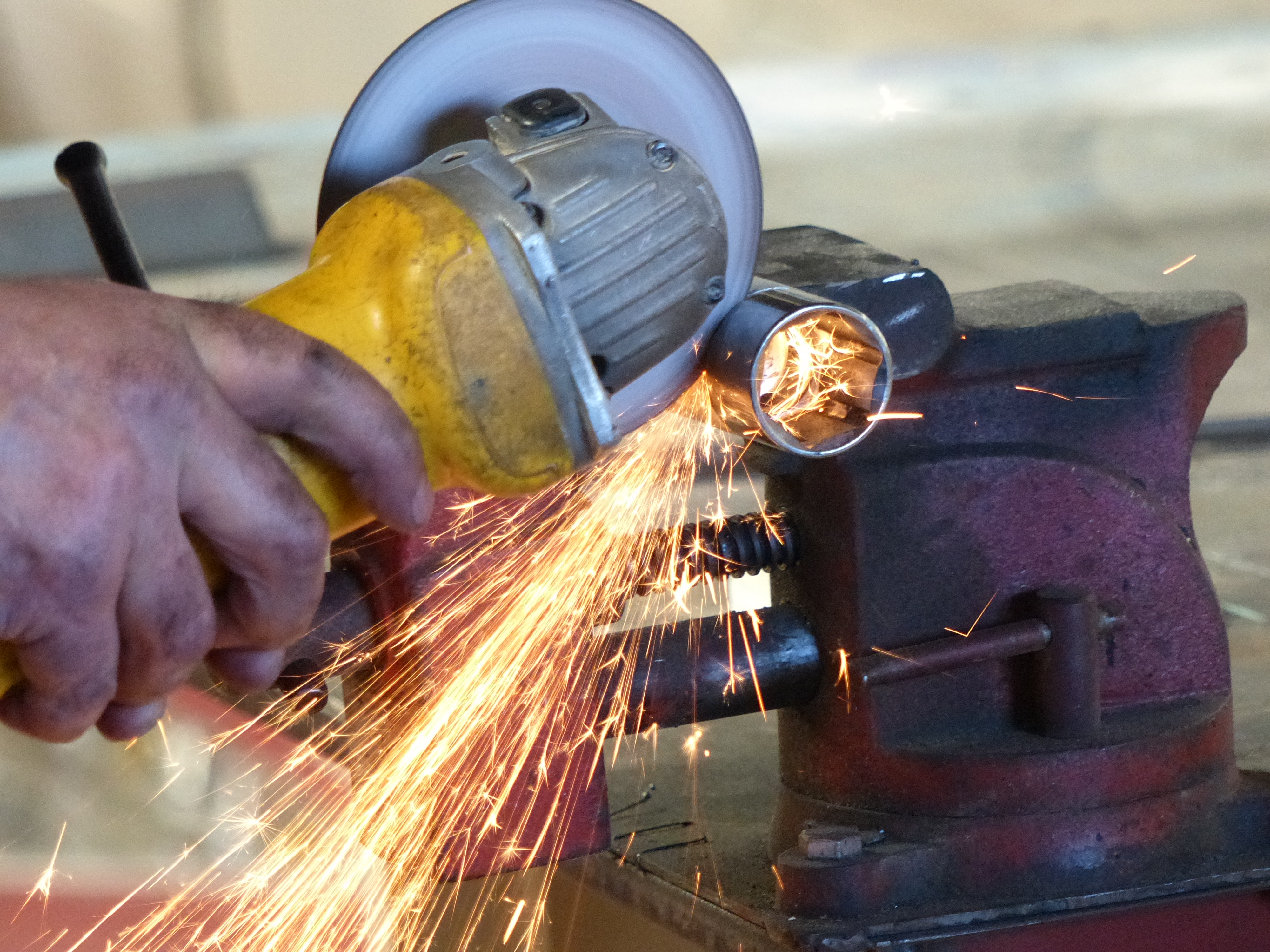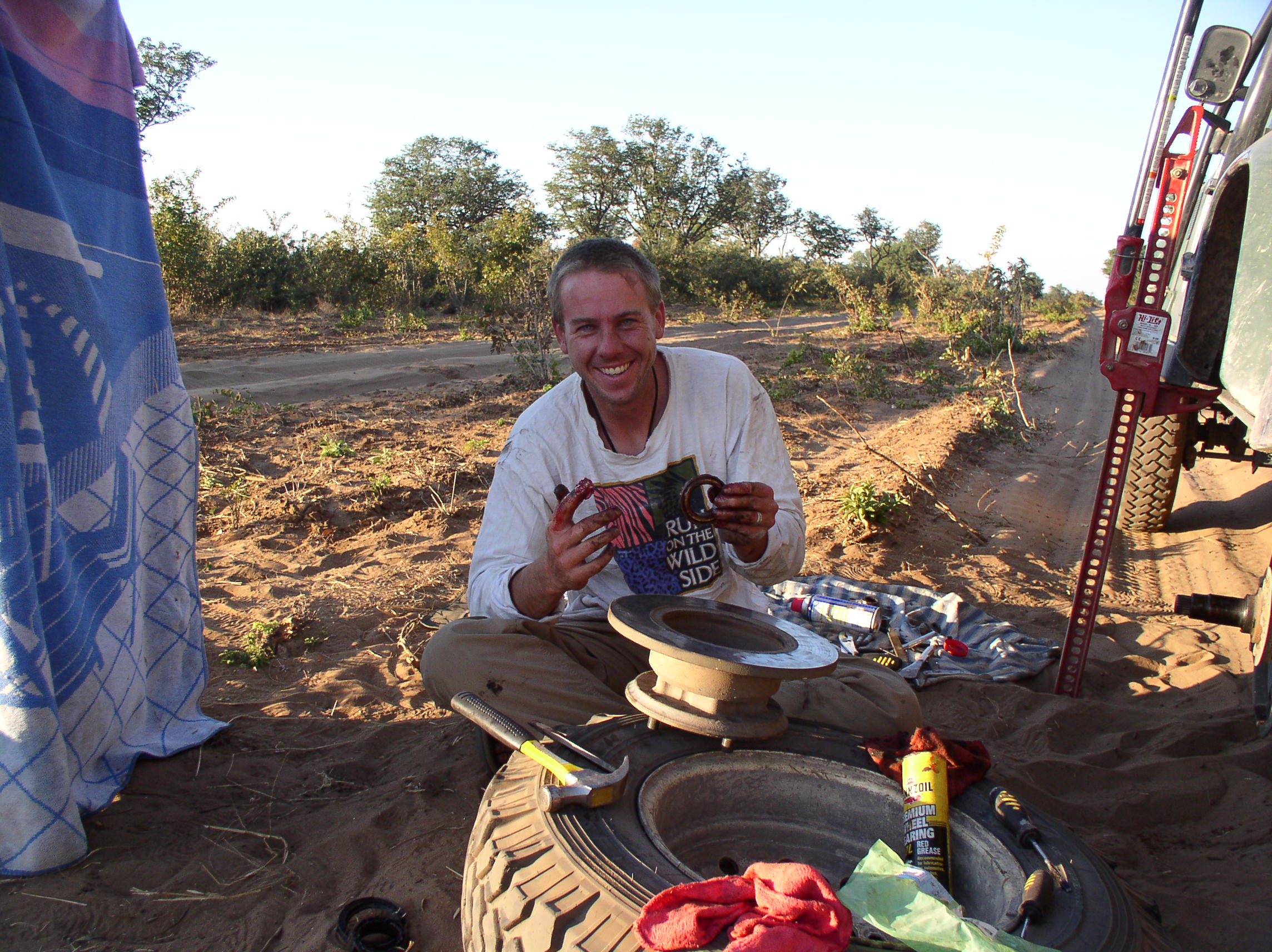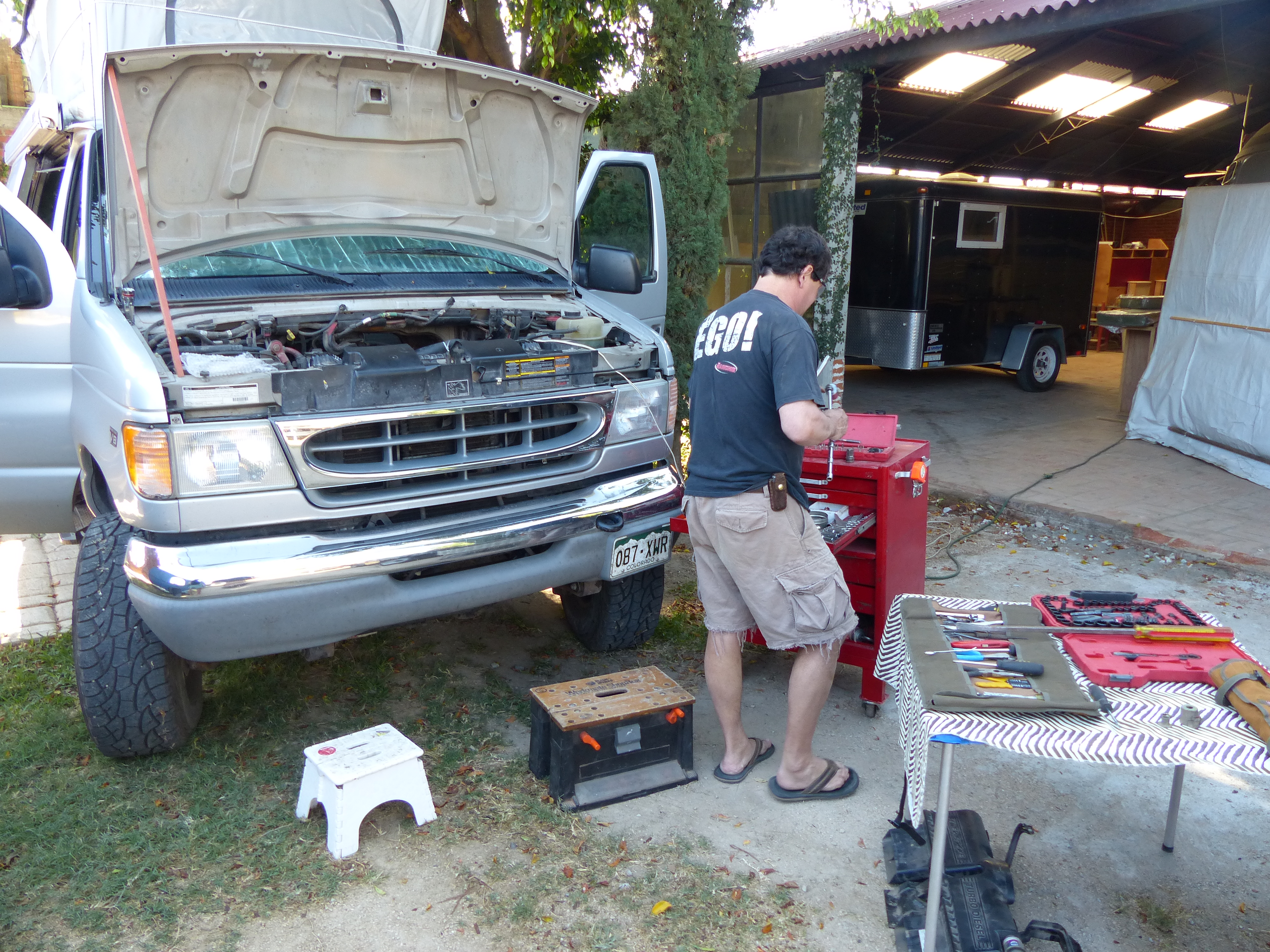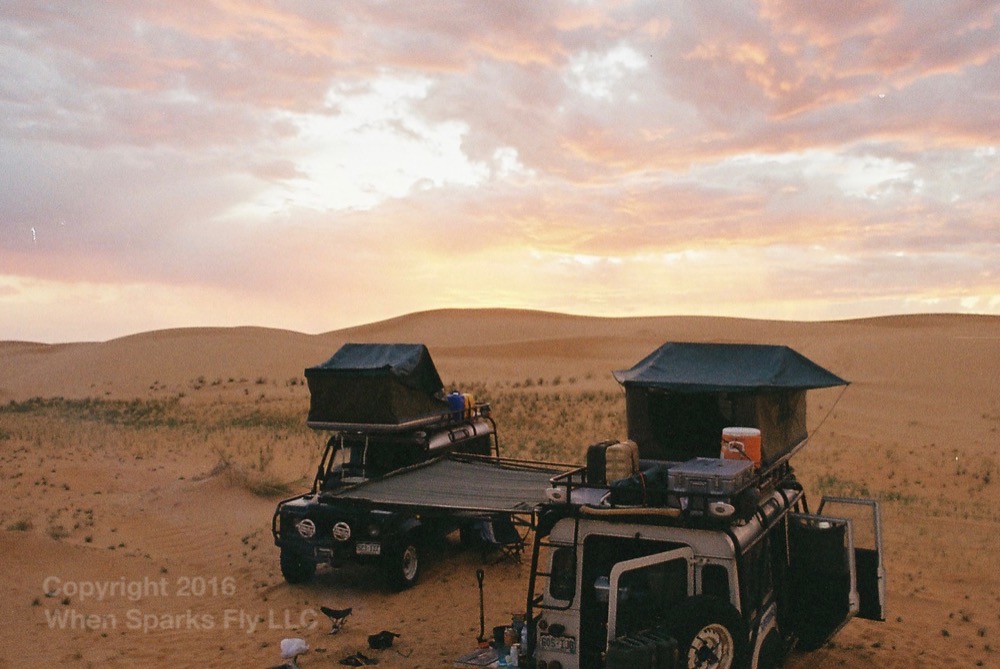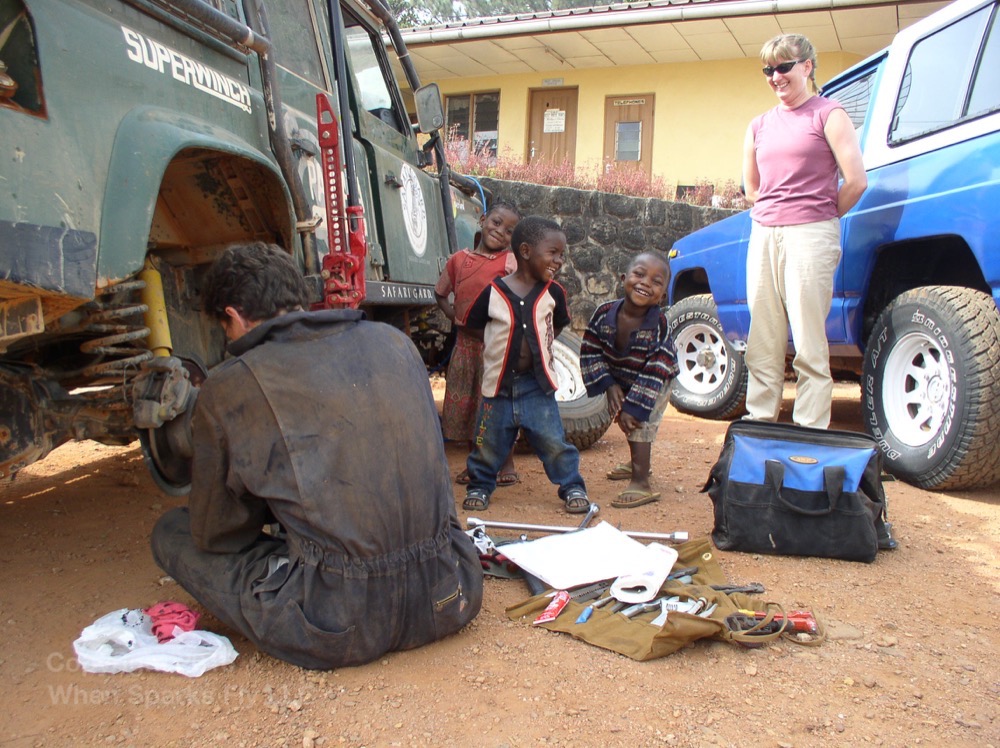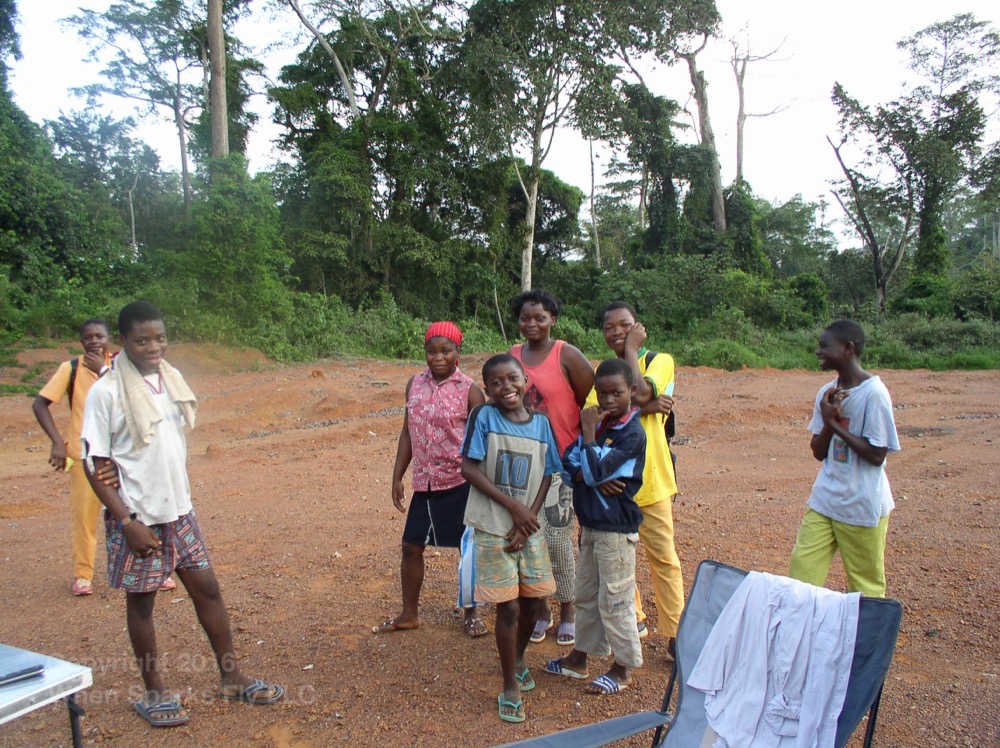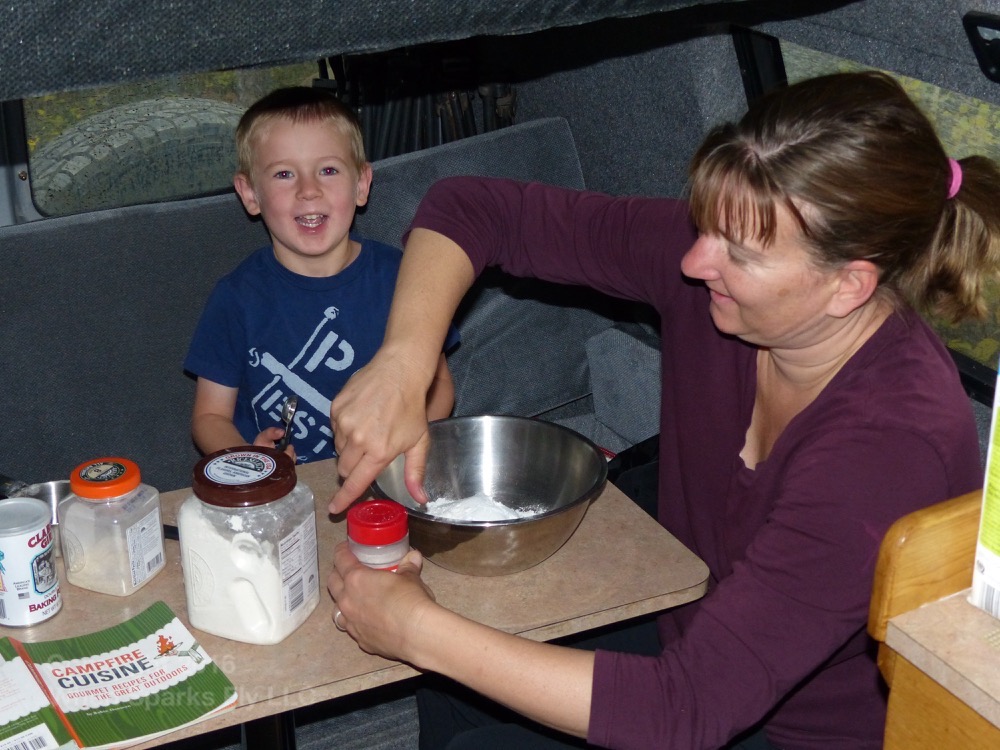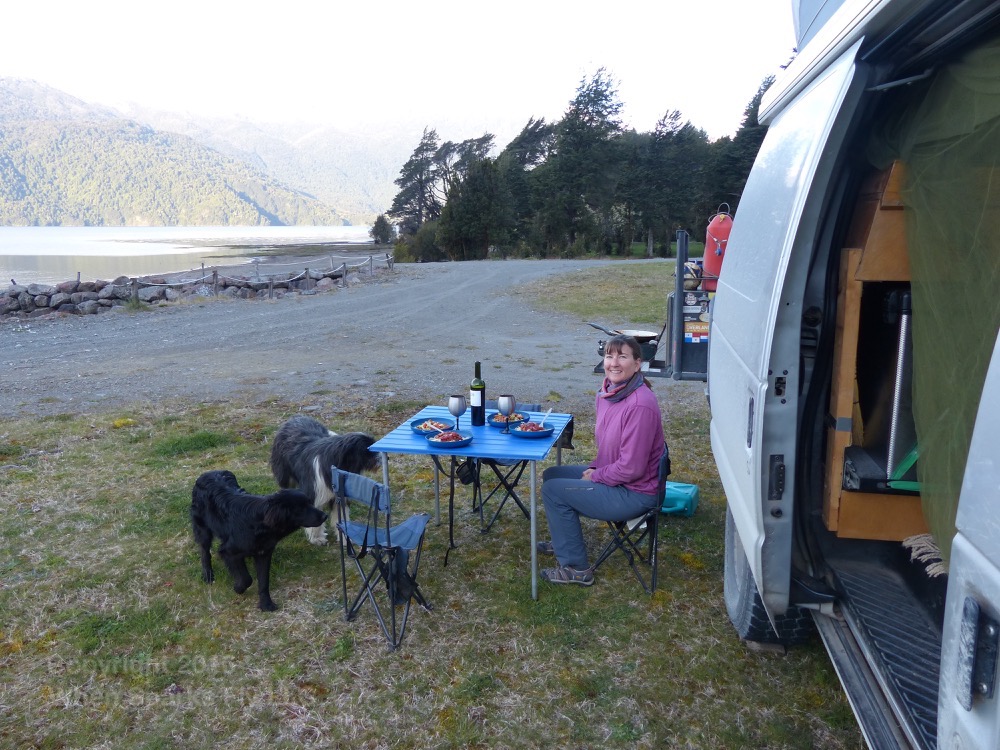When we were preparing for our trip through Africa in 2003, overlanding wasn’t yet a “thing” in the United States. Thus it was a bit of a challenge to get the specialty gear that we wanted for our trip. To do so we had to import some of our equipment, such as our rooftop tent, from South Africa.
Fast forward almost 15 years, and it’s fair to say that the overlanding industry has exploded. The Overland Expo in Flagstaff this year drew nearly 10,000 people and hundreds of exhibitors. In addition, there are now many companies producing (or importing) excellent overlanding gear.
Overland Travel vs Off-Roading
Fellow overlander, Graeme Bell, wrote a fantastic article on the difference between overlanding and four-wheeling. He discusses the mindset and needs of each type of traveler, and it’s clear that there are different requirements for each.
To someone planning their first trip, the line between these two activities can seem very blurry. This is partly because many companies that have traditionally served the off-roading market have seen a new opportunity to sell the same gear to overlanders. But as Graeme says in his article, overlanding is more about being able to live comfortably out of your vehicle over the long term and not about testing its limits on weekend jaunts.
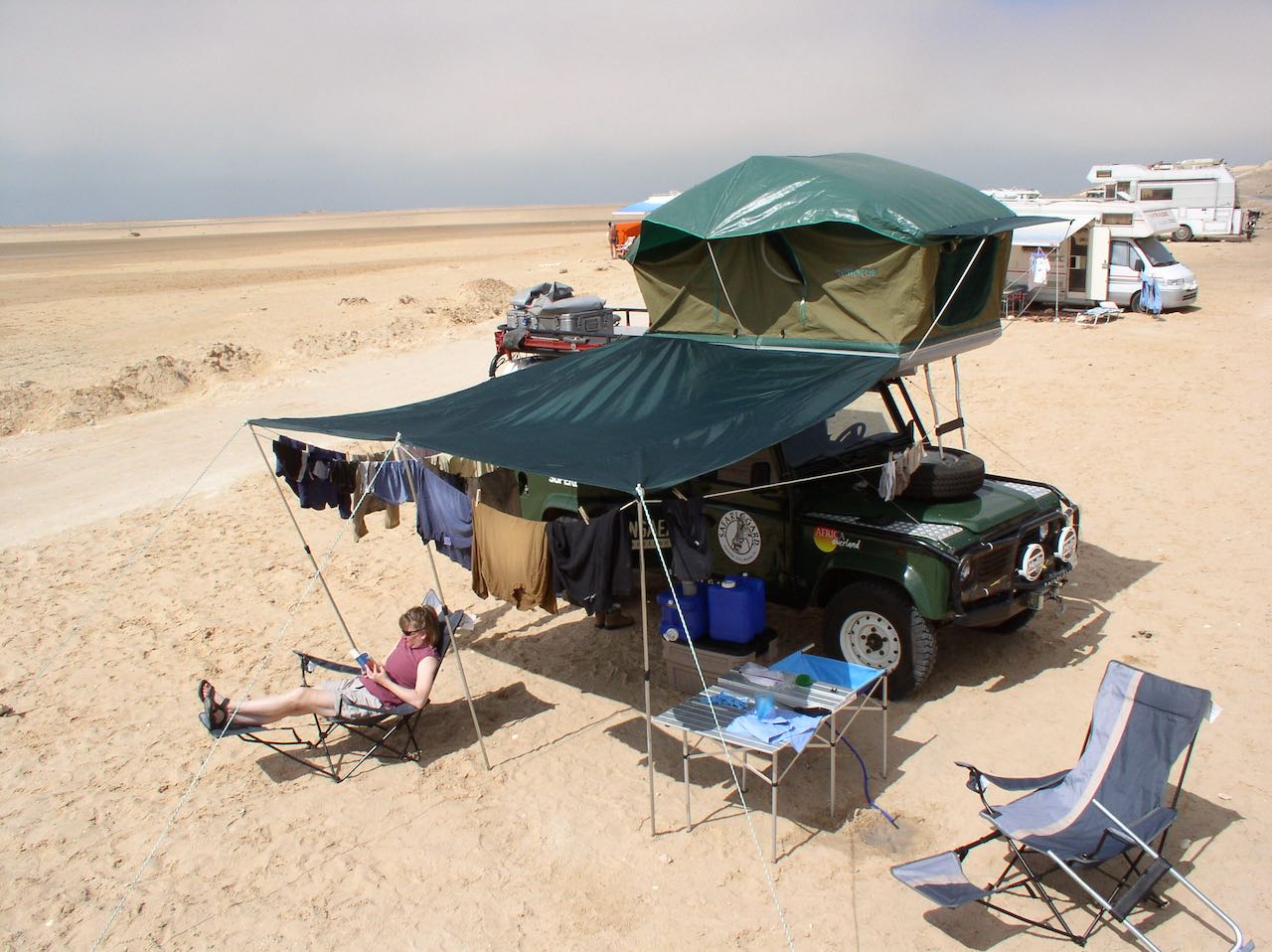
Relaxing in Western Sahara. This photo gives you an idea of the kind of gear that we had with us on our Africa trip. As much as we liked having shade, that awning was so difficult to set up that we hardly ever used it.
How Prepared Do You Have to Be?
If you spend an afternoon strolling through the exhibitor area at the Expo it’s easy to come away with the idea that you need tens of thousands of dollars worth of gear to have a successful trip. Similarly, many online discussion forums can be heavily tech- or gear-focused. Our experience is that most travelers won’t need most of these items to have a successful overland trip.
There’s strong bias in the overlanding community around being prepared, and being able to deal with any situation that comes your way without help. In reality no one is ever completely self-sufficient. Yes, it’s difficult to be in a position where you need to rely on help from others, but those situations can lead to rewarding experiences. We have spoken with a number of travelers whose best stories started with, “When we got stuck in…”
What gear should you bring with you? Let’s break things down a bit and hopefully pare down the vast array of what’s available so you can figure out what you’ll actually need and use.
4WD and Recovery Gear
This is a huge market. Products are expensive, and it is easy to sell folks on fear — you don’t want to be stuck somewhere unable to get out!
What you actually need is dependent on where you’ll be traveling and what you plan to do. A trip through the Americas is perfectly feasible in a 2WD vehicle. Unless you’re way off the beaten track, if you do get stuck there will probably someone along shortly to help you out. Sure, you may not be able to tackle a few of the more difficult routes, but there are plenty of opportunities for exploration and adventure that don’t require a special kind of vehicle.
If you’re planning a trip to Africa or Australia you may want to look more closely at a 4WD and some basic recovery gear. Some of the most appealing destinations on those continents do warrant a 4WD vehicle.
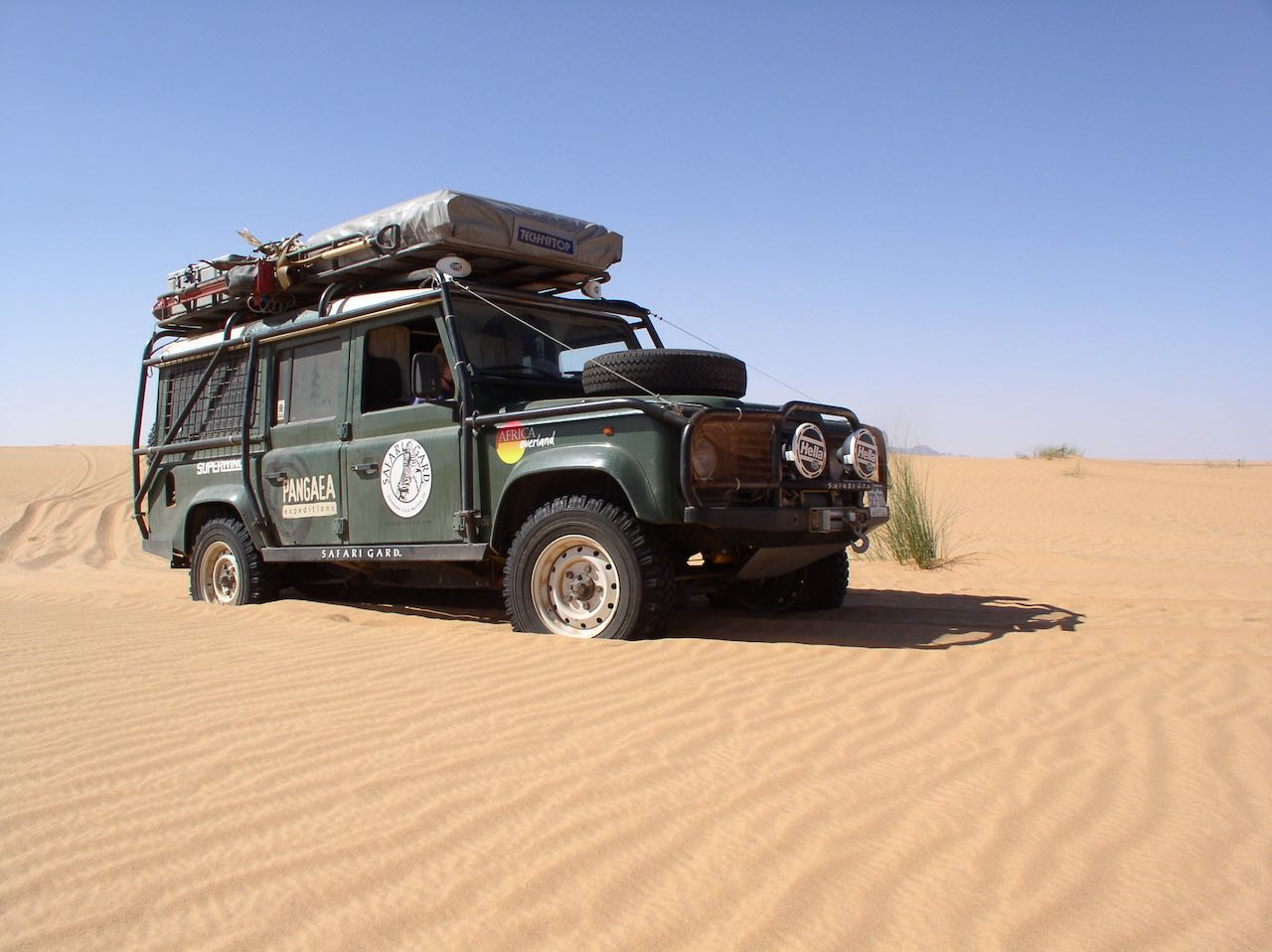
Sand driving in Mauritania. This was probably the one time when we could’ve put sand ladders to use, but we still got by without having them along.
Recovery gear is equipment to help you get out should you become stuck. Hi-lift jacks, sand plates, winches, and a dizzying array of other gear is available. Again it depends on where you’re planning to go, but ask yourself if it’s worth the extra weight and cost. How likely are you to actually use those sand plates? If you’re planning on crossing the Sahara desert, they could certainly be a wise investment.
Unless you’re going somewhere where special equipment is specifically called for, it may help to remember that the local people get around in most places in regular cars, vans or buses.
Comfort and Convenience
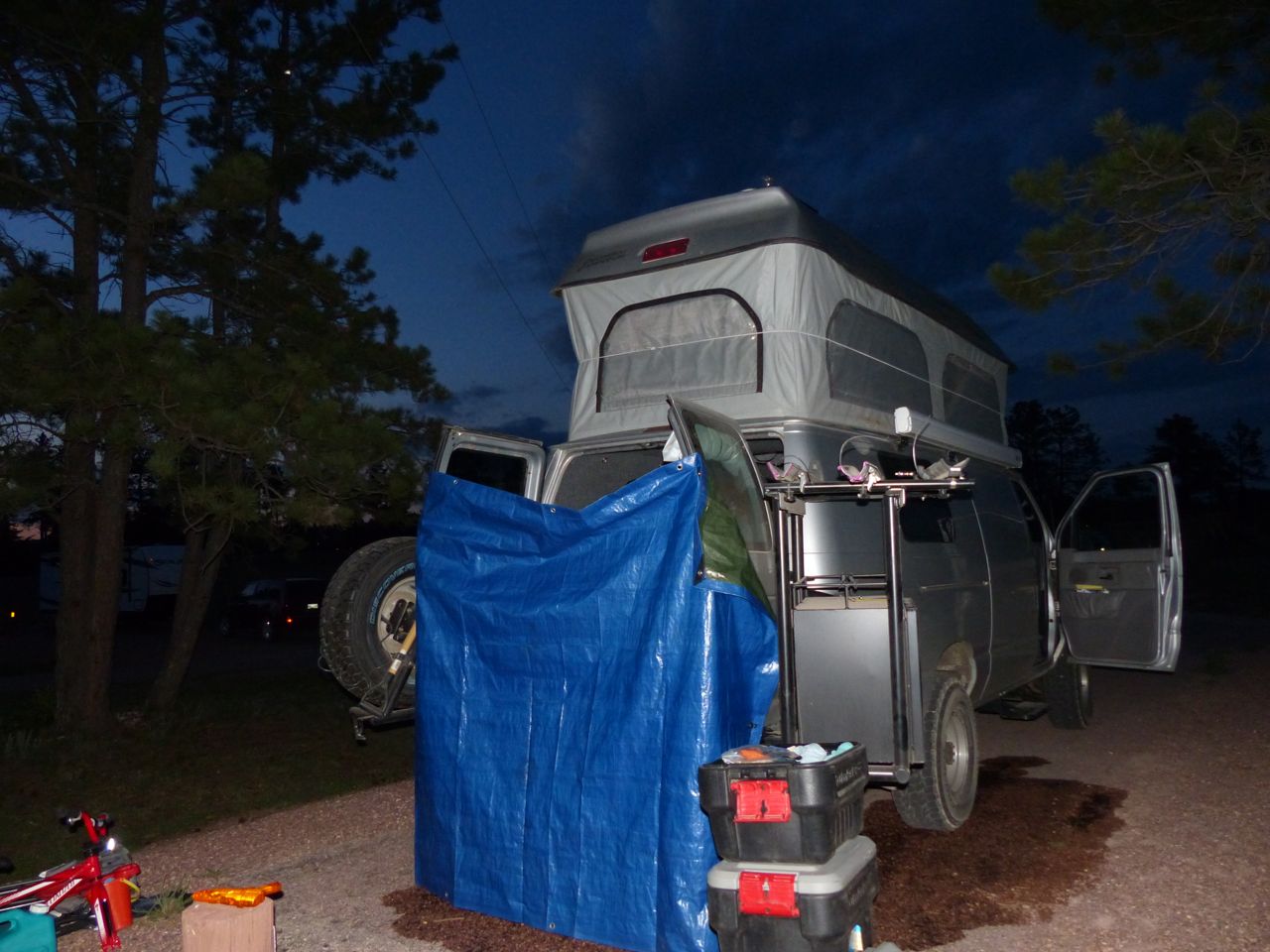
Shower night at the Sparks Van. We had a hot water shower system rigged up so that we could set up a shower stall using the back doors of the van, a tarp, and a lot of magnets. It was difficult to set up, and because we only had a 15 gal supply of water on board, we needed to be near a water supply to use it.
Awnings, camp chairs, BBQ grills and refrigerators can all make your life easier and more comfortable. What you’ll need and want all comes down to budget and personal preference. Again, think about how often you’re going to use some of these items, and about how they’ll pack into your rig. Yes, you might be able to wedge in that BBQ grill somewhere, but if it takes 15 minutes of unpacking to get to it, how often will you really use it? On the other hand if you love to grill and you have a great spot for it bring it along!
Take some test trips before you leave home, ideally longer than just a weekend. Start with minimalist kit – only the stuff you know you’ll be bringing. If you decide you really love those comfortable camp lounge chairs, then find a spot to stow them and add them to the list.
Rules of Thumb
Deciding what kind of gear to bring on an overland trip is a personal decision. It’s a trade off between simplicity and comfort and between self-reliance and accepting help from others. Keep in mind that you’ll be living out of your vehicle for months at a time. Using your limited budget to enhance day-to-day comfort will probably be more rewarding than that really cool looking LED light bar.
Here are a few more guidelines to keep in mind when selecting your gear:
- Accessibility and ease-of-use are key. If something is hard to get to or set up, you won’t use it very much.
- Keep the weight of your vehicle within its maximum limits. Your vehicle’s suspension will have fewer issues during your journey and you’ll get better gas mileage too.
- Stick to a budget. If you can spend a little less on gear you can travel less frugally and/or travel for longer length of time. While the preparation phase can be exciting in it’s own right, actually getting out on the road is what overlanding is all about.
- Less is more. The more things you have, the more things there are to break or lose. Chances are that you can pick up what you need along the way, so don’t feel that you need to pack for every possible situation.
- Bring items that serve more than one purpose rather than a lot of specialty gear. Doing so can greatly reduce the amount of stuff that you have with you.
- Figure out where you plan to store each item. Shuffling stuff around (or tripping over it) gets old rather quickly. It’s better to have everything tucked out of the way of your living space.
Stay tuned for more on this topic!

